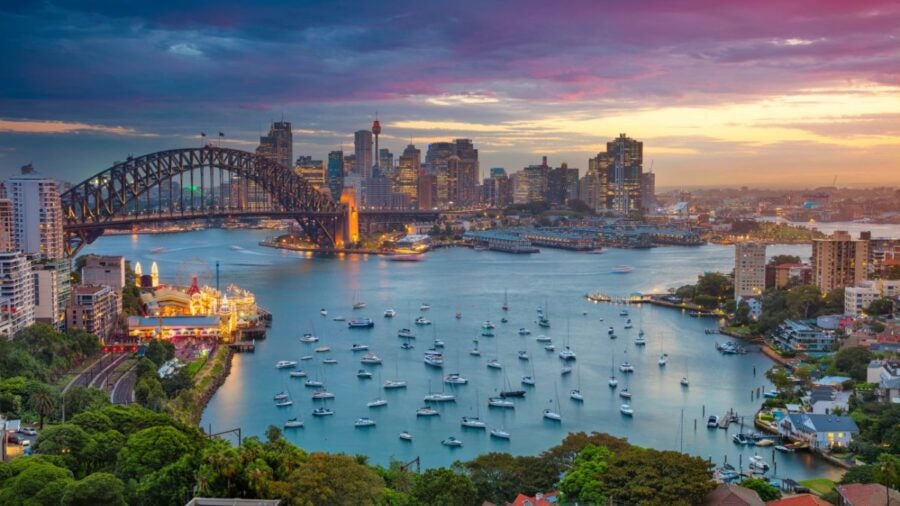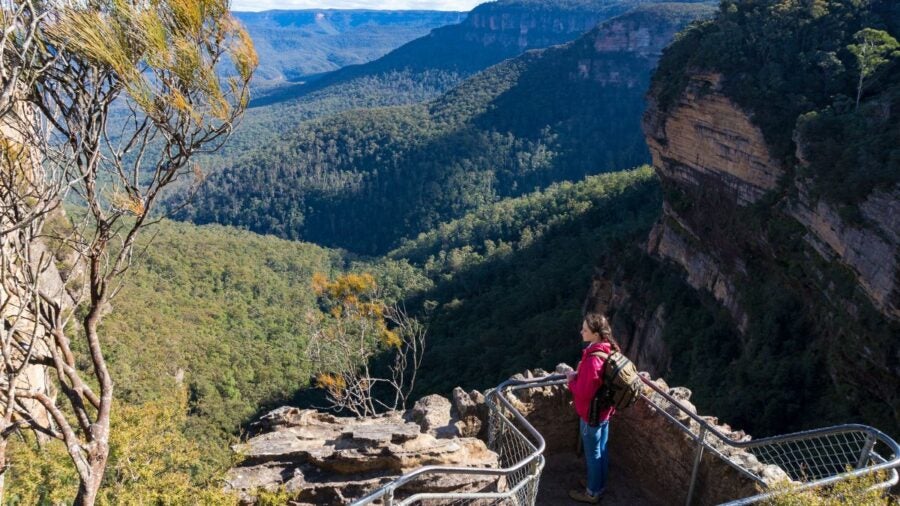
Images of golden beaches and sparkling city skylines, and the prospect of a high salary and easy-going lifestyle attracts thousands of people to Australia each year.
Yet despite this appeal, the country faces major skills shortages across a number of occupations. In August 2022, prime minister Anthony Albanese revealed a list of the top 10 jobs with critical shortages in the country that included civil engineers, nurses, software programmers and electricians.
The lack of local talent has led to a review of Australia’s visa programme aimed at encouraging more people to relocate to the country. Sydney, Melbourne, Perth and Adelaide are the top four most popular cities for expats, although there are well-paid opportunities in rural and regional Australia, where cheaper property prices mean your salary might go further.
What to know before you go
Even with the government actively promoting Australia as a destination for skilled people, visa applications can be confusing. There are 43 different employment visas, so the government’s visa finder website, where there is an online quiz, can help prospective employees work out which one will best suit them.
“It’s not an overly difficult process, but there are a lot of steps you have to follow to apply for a working visa,” says Sarah-Jane McQueen, general manager for corporate training provider Candlefox, who relocated from London to Melbourne in 2022.

The process can be expedited if you have a job offer and the employer is willing to sponsor your visa. Alternatively, you can make an expression of interest via the SkillSelect website. This is not a visa application, but it makes it easier for employers to find candidates with the right skillsets.
Alternatively, the Australia Skilled Independent Visa, for people aged under 45, and Australia State Sponsor Visa are points-based visas, which allow individuals to move to Australia and look for employment within a certain timeframe.
A five-year business innovation and investment visa has an entrepreneurial option for people who want to start a business in Australia, and costs start at AUD$4,240 (£2,260). Under the family sponsorship programme, you can move to Australia without a job if a spouse, partner, sibling, parent or other close relative is willing to sponsor your residency.
“Something I really respect about Australia is the entrepreneurial spirit and openness to people from diverse backgrounds,” says Gayle Dickerson, who moved to Australia in 2004 and works for a global accountancy and consulting firm. “High immigration creates growth – there are great opportunities for those that work hard, including building your own business.”
Something I really respect about Australia is the entrepreneurial spirit and openness to people from diverse backgrounds
The working holiday visa brings many young people to Australian shores. People aged 18 to 30 – or 35 in the case of citizens from the UK, Canada, Japan, Hong Kong, Korea, Taiwan and 13 European countries – can stay for up to three, 12-month working holidays. It is not unusual for working holiday-makers to become permanent residents if they find an Australian partner or get sponsored by an employer.
Liv Haddow, a freelance PR and writer moved to Australia in 2018 and, although she already had a job lined up before arrival, she started out on a working holiday visa. “The first job I had in Australia wasn’t quite the right fit, but I wasn’t able to leave without another company taking the visa on,” she says. “You have to really impress a company for them to bother going through the process and you’re then tied to it, which is torture if it’s not right for you.”
What to expect at work
Company culture is frequently used as a selling point in attracting candidates and there is an emphasis on forming friendships and socialising with workplace colleagues. “The workplace culture in Australia is certainly more laid-back and less formal compared with the rest of the world,” says McQueen. “Australian companies appreciate a collaborative approach consisting of workshops, flexible working hours, chit-chat and coffee catch-ups.”
Time zones can also dictate working hours for those who are employed by global businesses. “Sydneysiders are often at the behest of global time zones, so you can have long days,” Dickerson says. However, even in high-pressure cities, such as Sydney or Melbourne, Australia can offer a good work/life balance.
If you lead an active lifestyle, Australia is unbeatable
“I would say Australians are generally more healthy and they appreciate sports and an active lifestyle, so if you told your boss you wanted to go for a run at lunch, you’d have their full support – lots of people in Sydney surf before they go to work,” says Haddow.
As well as corporate, medical, hospitality and technological roles, Australia offers some unique opportunities. Jasmin Silk-Reeves received help with her move from the UK from Welcome to Travel and now has her dream job – a horse-riding instructor in the Australian outback.
“This was the second role that I applied for and within five days of looking, I was on a train to start a two-week horse riding trail,” she says. “If you’re considering doing it, just go for it. I was worried about being an older traveller, but because everyone out here is in the same position, your age is totally irrelevant.”
How far will your money go in Australia?
The comparatively high salaries across many industries attract people from all over the globe. However, it is important to be aware that the cost of living is relatively high. McQueen says your salary “will go as far as your lifestyle permits.”
“Salaries can vary significantly, depending on the industry and job sector, with some professions, such as doctors, lawyers and IT professionals commanding higher salaries than others,” she continues. “The cost of living also varies significantly across Australia, with cities such as Sydney and Melbourne being more expensive than regional areas.”
Rent in Sydney and Melbourne is the most expensive in Australia, so housing costs are worth considering when calculating how much you can save or spend. According to data from SQM Research, the average weekly rent in Sydney for a two-bedroom flat is AUD $688.56 (£366.39). In Melbourne, this figure sits at AUD $532.66 (£283.44) per week.
The average weekly grocery bill also varies between Australian states from AUD $143 (£76) in Western Australia to AUD $160 (£85.14) in Tasmania, according to a July 2022 survey by researchers at Canstar Blue.
However, the exchange rate can be a positive for foreign employees. Irwin Hau, director at Chromatix, a Melbourne-based web design agency that has hired employees from abroad, says that the strong Australian dollar means that many expats’ money “stretches much further and gives their families a lot more financial strength”.
What do people do for fun in Australia?
For Haddow, the proximity to the great outdoors has been the “best aspect” of moving to Australia. “You can live and work in the city, but get to a fantastic beach town or remote mountain for the weekend after an hour or so of driving – it’s unbeatable,” she says. “It’s great if you lead an active lifestyle.”

But it’s not just the great outdoors that draws people to Australia – Sydney and Melbourne are known for their cosmopolitan restaurants and bars, and lively pubs.
Australia’s other major cities, such as Adelaide, Perth, Brisbane and Darwin, also attract serious foodies keen to try a range of cuisines, including modern Australian, which fuses the best local ingredients with influences from the Asia-Pacific region. The state capitals have world-class cultural activities too.
“I lived in Melbourne, so I spent a lot of time going out to enjoy the food and pub scene with friends,” Haddow recalls. “The state gallery had some fantastic roaming exhibitions, so I would often catch those, plus lots of great DJ nights in and around town.”
Balancing the challenges and benefits of the Australian lifestyle
For many expats in Australia, especially those who have come from the UK and Europe, the sheer distance of the country from many other parts of the world can be hard to get used to. “From the UK, it’s simply an enormous trek,” says Haddow. “It’s not possible to be there for every wedding or christening or event, which is really tough if you’re close to your family.”
Dickerson agrees: “Sometimes Australia feels like the end of the world, not just geographically but in feeling a long way from global events.” This can mean that expats spend a lot of their time connecting with family on Zoom calls and booking expensive international flights.
However, having a large expat community means that people are very welcoming. “It is easy to build a network in Sydney as many people have relocated here are from all over the world,” says Dickerson. “Sadly, sometimes that means it can be quite transient as people come and go.”
The multicultural workplaces created by recruiting people from other countries also adds “a beautiful dimension of diversity” to teams, Hau says. “We’ve learnt a lot from each other in the way we approach problems.”
You can read more from our Working Around the World series here.

Images of golden beaches and sparkling city skylines, and the prospect of a high salary and easy-going lifestyle attracts thousands of people to Australia each year.
Yet despite this appeal, the country faces major skills shortages across a number of occupations. In August 2022, prime minister Anthony Albanese revealed a list of the top 10 jobs with critical shortages in the country that included civil engineers, nurses, software programmers and electricians.
The lack of local talent has led to a review of Australia’s visa programme aimed at encouraging more people to relocate to the country. Sydney, Melbourne, Perth and Adelaide are the top four most popular cities for expats, although there are well-paid opportunities in rural and regional Australia, where cheaper property prices mean your salary might go further.




